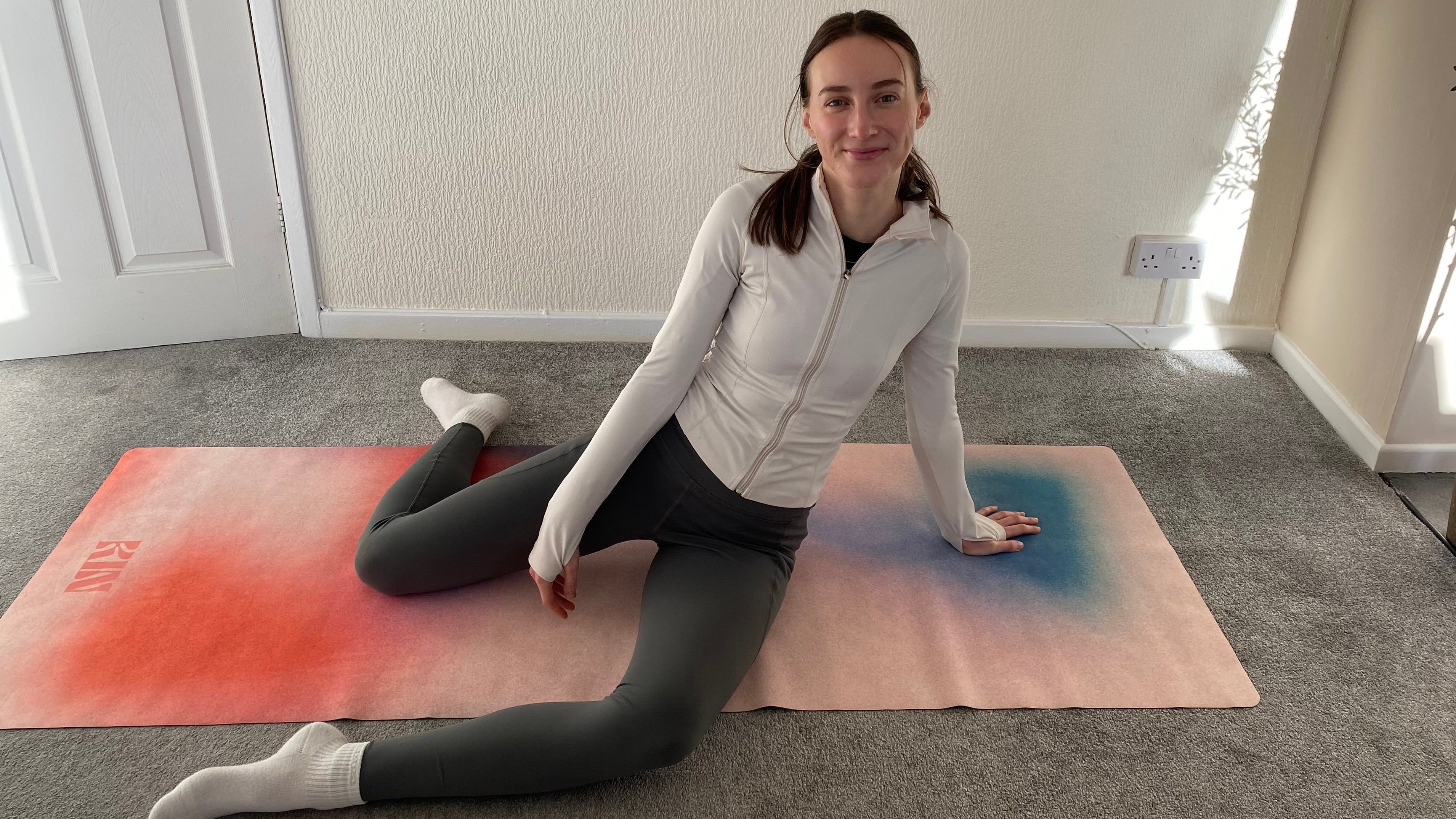I did this five-minute hip mobility routine for 30 days—here are the three ways it changed my body
This is the best anti-desk mobility routine I’ve found


Start your week with achievable workout ideas, health tips and wellbeing advice in your inbox.
You are now subscribed
Your newsletter sign-up was successful
The older I get, the more I need to practice mobility to reduce the daily aches and pains I’m (sadly) starting to feel.
Hip stiffness is my biggest problem. My right hip in particular gets achy when I’ve been sitting for too long, which is why I wanted to try a five-minute hip mobility routine every day for a month to see if it could help.
After a quick YouTube search, I found a routine by NASM-qualified fitness instructor Alyssa Schwartz, which looked ideal for stretching out my stiff hips and fitting in on a daily basis.
Instead of practising the routine at the same time each day, I decided to slot it in as and when I needed it; on a break when working from home, as a warm-up before a run, and a wind-down before bed.
After committing to this routine for a month, I noticed three tangible results.
The routine
The changes
1. My stride feels longer and more relaxed
It took around three weeks of daily hip stretching for me to notice a difference in my walking and running stride, but I was really pleased once I did.
I hadn’t actually realized that my stiff hips were limiting my stride length, but after this experiment my steps now feel smoother, like my hips aren’t blocking any motion.
Start your week with achievable workout ideas, health tips and wellbeing advice in your inbox.
It’s subtle, but I can tell I’m covering more ground with less effort.
2. My pangs of stiffness are less frequent

As I mentioned earlier, my right hip will start to twinge when I’ve been sitting for a long time.
It’s the sort of discomfort that borders on painful, so I’m glad to report that just five minutes of daily stretching has massively reduced this.
I also find that I don’t need as long to limber up before going on a walk or run, as everything in my lower body feels ready to move much sooner.
3. My balance has improved
This one surprised me.
The routine I followed focuses on loosening the hips, but after a month, I can feel a big difference in my single-leg balance and control.
When I perform any unilateral exercises now, I feel less wobbly and more stable. My hips don’t drop to one side during moves like lunges and I feel like my pelvis is more stable when running.
A good piece of advice Schwartz shares in the video is to notice whether we sit cross-legged, or stand with our weight shifted to one side more than the other.
I’ve definitely become more aware of when I’m doing this, which could be making as much of a difference to how my hip feels as the routine itself.

Katie Sims is a freelance journalist with a keen interest in health and fitness. She graduated with a master's degree in Media and Journalism in 2021 and has written health content for publications like Marie Claire, Liz Earle Wellbeing, and Tom's Guide.
She's tested fitness devices, workout methods, and nutritional advice to see what can help her (and others) feel good from the inside out.
When she's not writing health and wellness content, she'll either be on a long walk, at a Pilates class, or tackling her long list of books to read.
You must confirm your public display name before commenting
Please logout and then login again, you will then be prompted to enter your display name.
